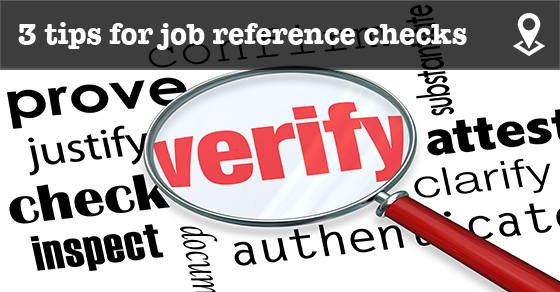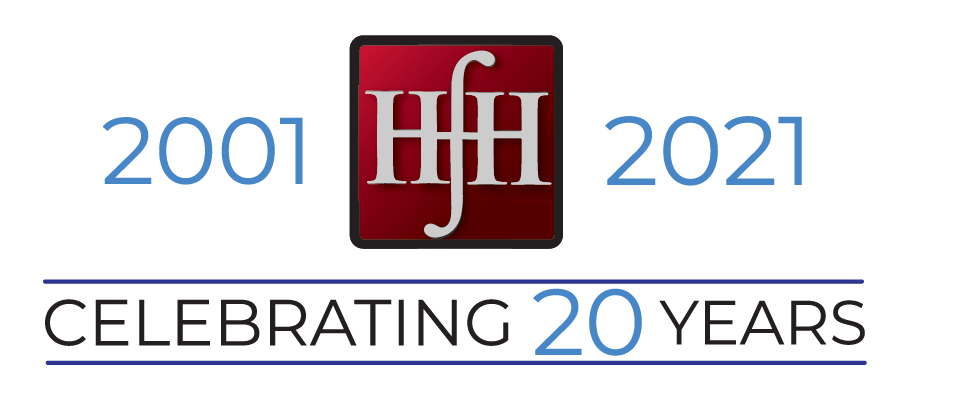When a company asks for your references, it’s often the last step in the screening process before receiving an offer. As long as you verify with your contacts, and as long as you have been truthful in your resume and interviews, the reference check should be a non-event.
You are on the homestretch. This finish line is in sight, but you’re not there yet. Scrambling for references or fumbling this step can trip you up. Be proactive and prepared for this step, and you will be soon celebrating your new job.
Before talking strategy, it’s good to understand what the employer likely is looking to learn from your references. A company reference check is the “trust but verify” stage prior to extending an offer. They are looking for a few key things in a quick 10-15 minute phone call:
- * Verification – At a basic level, does the role, dates, titles, and responsibilities you indicated on your resume match up with reality? They want to confirm that you did what you said you did. Any fudging of the truth is a big red flag.
- * Work performance – What were your strongest attributes in your last role? What key results did you deliver? How did you stand out from your peers?
- * Team & culture fit –How did you resolve conflict and communicate your ideas? How did you build and mentor your team?
- * Growth areas – What areas could you improve in order to get to the next level? What struggles or areas were you being coached through? What is the greatest misperception of you on the team? No one is perfect, so a reference that cannot cite any areas for growth may be enough to invalidate their perspective.
- * Motivation/drive – What drives you and inspires you? What advice would you give to a future manager on how to best lead you? This is more of an onboarding question, but it leads to an interesting insight.
- * Reason for departure – Why did you leave? Was it a “mutual parting,” or something unstated? Not all companies and roles are an ideal fit, but if the stories don’t line up with what you stated in interviews, you’ll get yourself in trouble.
- * Recommendation – Would your former employer recommend hiring you? The question should yield a “yes” or “no” response, and hopefully, it’s a foregone conclusion by the end of the interview.
- * The unspoken message – The interviewer will be listening for enthusiasm or hesitation in the voice of your reference. When a company hears very robotic, HR-approved answers, this raises concerns something is being hidden.
With the perspective of your potential employer in mind, here are three key things you can do to proactively prepare for the reference check request, and ultimately increase your chances of closing the deal:
1. Build your roster for ideal references.
Companies like to see references across your last 2–3 employers. The ideal mix includes your direct manager(s), peers/co-workers, and direct reports (if relevant) for each company. You’ll probably only need 3–4 of these folks, but it’s good to have a broad list ready.
Who your past job references are carries as much weight as what they say. Providing a company with the contact info for your last three managers communicates transparency and confidence. If your list is limited to personal friends and your mom, that sends up a red flag!
When you provide a prospective employer with references, you’ll want to include the following information for each:
- * Name
- * Current job title and employer
- * Email and cell phone
- * Relationship context
When describing relationship context, mention what title/role the reference held while working with you. Include 1-2 sentences regarding the types of projects you worked on together, and any specific areas where they would be helpful for comment. By doing this, you steer the conversation toward the points you feel would be best for the reference to share.
2. Ask permission and prep your references
For each job opportunity, select references that might be the best fit in terms of personality or background. Then, ask if they would consider serving as a reference.
Make the ask in a phone call for a personal touch, and to connect with them faster than over email. Most will agree, but never list a reference without their OK first. It doesn’t look good if they are surprised when your prospective employer calls.
After getting the OK, set up your references for success. They want to help you, but they are also busy so make their job easier and prep them. It shows respect, helps them focus and will increase the quality of the reference.
Send an email (so they can refer to it later) including:
- * Job description of the role for which you are a finalist.
- * Explain why this role and company are exciting and a good potential fit with your skills, interests, and career plan.
- * Guide them on a few particular project stories or culture areas you expect the company to ask about.
- * Prep them on the person who will be calling—job title, company, LinkedIn profile.
- * Confirm details. Send your reference the same contact info and context you plan to provide the company in order to double-check for accuracy, and so that they know what the company has received.
3. Thank them.
Say “thank you” to your references with a personal note. They are busy, and being a reference requires an investment of time. Consider including a $10 Starbucks card. Do not overuse the reference, if possible.
Keep engaged with them during the search process, and let them know if you landed the job. If they gave a reference, they will be curious about the outcome, and likely want to celebrate a positive result.
Job Reference FAQ
Should I include personal references?
From the employer’s perspective, personal references are not usually useful or respected since they have not seen your work performance. One exception might be if you’re applying for your first job, but even then you should first try to cull references from internships, volunteer efforts, or college work-studies.
My prior company has a “no reference check” policy. What should I do?
Unfortunately, some companies prohibit references under the guise of legal concerns. But I wonder if this is actually a selfish way to prevent managers from getting distracted with reference calls. Provide any contact you can, even if it’s only HR staff.
One way to get around this is to find a former employee not bound by the gag rule. Or you could request a recommendation on LinkedIn rather than a formal reference phone call.
Should I ask my references to post a recommendation on my LinkedIn profile too?
Yes. If possible, when requesting a reference, ask if they would be willing to post a quick recommendation on your LinkedIn profile. Employers see this as a proactive effort, which boosts your credibility, and they may even decide a reference phone call isn’t necessary in addition.
If I’m currently employed, how do I provide a reference for my current employer without raising suspicion?
A prospective new employer should respect the situation and not require a current employer reference, but they won’t want to go in blind either. A common approach is to provide the names of the references, but ask that they not be called until you have a written offer that is mutually agreeable, pending positive reference checks. You can also consider finding a co-worker you really trust to serve as a confidential reference. Or find a former co-worker who is no longer with the company.
Should I add references to my resume?
No. You don’t want your references called unless you know it’s going to happen. Some recruiters will harvest reference contact information to call for unrelated roles, which you don’t want.
If a job application asks for references, should I provide them?
A job application of this nature is often an HR form you are completing. Companies like this simple process, and people just fill things out without thinking about it. I would recommend not filling this out until you understand what happens with this information. Instead, you can write, “Full references provided, assuming mutual interest.”
If they still press for references, you could provide the minimum amount of information and request that they refrain from contacting anyone until a mutually agreed-upon point later in the selection process (toward the offer stage). If they check your references before interviewing, I would walk away. It’s not wise to the risk of overloading references with a job you are not sure about, and the company is not respecting this courtesy, which is not a good sign.
What if I’m concerned that I might not get a good reference?
If you’re not sure about what a reference might say, consider paying a reference checking service. I haven’t used one personally, but there are many online to help confirm your concerns or remove doubt.
If your last job didn’t end well, it’s good to be upfront about what happened, what you learned from it, and how the job you are applying for is a much better fit in terms of role, company, or culture. Then, if they call your reference and hear similar things, you are on the same page. The strategy, in this case, is to minimize surprises.
For more helpful job search tips: Ultimate Job Search Guide: Recruiter Insider Tips



